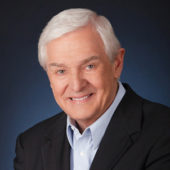It’s time once again for our monthly opportunity to get answers to your questions on the bible, faith, and the church! Professors Mark Muska and Brad Sickler from the University of Northwestern answer Angela’s question about drawing near to God.
“In our simple state before salvation, we are completely depraved and we would reject Christ. How is God able to draw us? Per John 6:44, is that drawing necessarily an effectual drawing? How are we even able to be drawn in any sense?” –Angela, Faith Radio listener
Professor Sickler says that this question is one of the most contentious issues in Christian theology. He provides the context of this historical controversy,
“The question of our action vs. God’s action has been tossed back and forth for centuries and centuries and centuries, really from at least the 2nd and 3rd centuries.”
If God is drawing us, do we have the ability to resist that?
The answer to this question differs based on doctrinal differences.
“Now you might divide opinions on this in a couple of categories; you might call them Augustinian and Pelagian or Semi-Pelagian, or you might call them Calvinist and Arminian; which is probably a more familiar term for people.
The Arminian view has a stronger emphasis on our response built on the foundation that we can resist God’s grace.
“The Arminian position is that the grace of God in drawing is necessary for us to respond to the gospel, but it’s not sufficient. So the Arminian view is that God can call you but you don’t have to respond to the call you can resist it, but you are responsible and culpable for how you react.”
In contrast the Calvinists believe that God’s grace is irresistible.
“The Calvinist view or the Augustinian view is that because of depravity, we are unable to do anything but choose to sin and rebel. So our power of choice is twisted and distorted and we aren’t able to respond right to the gospel call unless God gives us the rebirth that Jesus talks about in John 3.”
Professor Sickler expands on his personal belief.
“These are issues that have gone back and forth. I myself am of the latter camp; that the regenerative work of the Holy Spirit is both necessary and sufficient, that there is no work that I can do even in responding to what God calls me in that would make it ‘click.’ My nature is such; being depraved and being self-loving above God loving that I can’t freely choose to put God ahead of myself – I literally cannot do that. So I would fall into that category; the Augustinian, Calvinist, reformed position.”
Professor Muska adds that despite the disputes and differences, there is a common ground for Christians on this issue.
“We spend all our time arguing that we forget a lot of the stuff was settled between these groups centuries ago. We don’t argue about it anymore because we have a general agreement about it. In this issue, there’s a lot of agreement; both the Augustinian and the Semi-Pelagian will agree that God’s got to do something or we’re lost. We’re not going to respond to the Gospel because of our own desires; God has got to move within our hearts to draw us.”




















